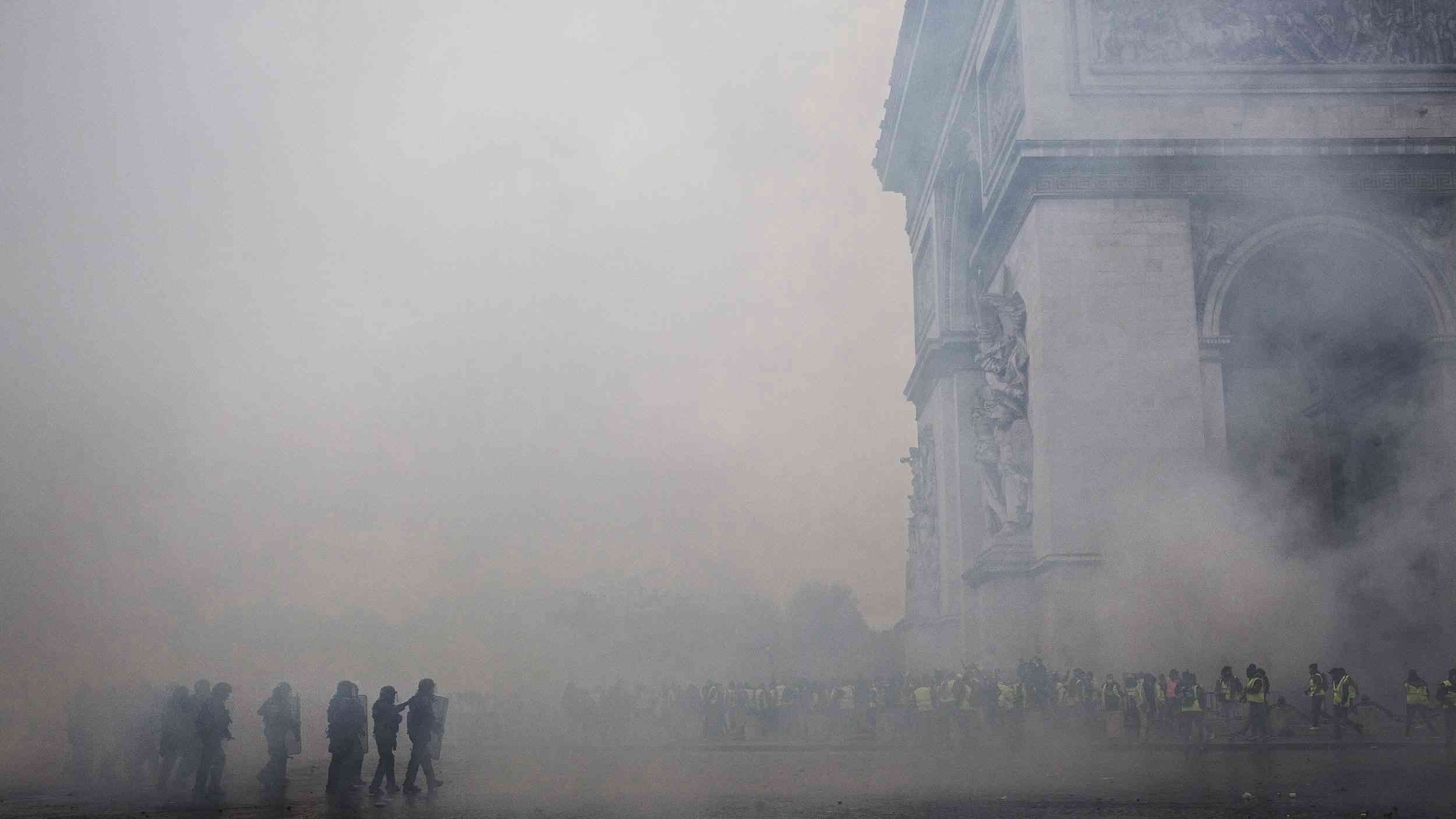
Business
21:33, 05-Dec-2018
Expert: France urgently needs structural reform
Updated
20:50, 08-Dec-2018
CGTN's Hu Binyi
04:09

France is suspending three fiscal measures, including a fuel tax increase, for six months following days of violent protests. President Emmanuel Macron said the measures were necessary to combat climate change; however, they are now on hold.
Wang Jianhui, general manager of R&D at Capital Securities, pointed to the economy as the cause of the recent unrest.
"I think the economic growth is kind of disappointing. So far, the French GDP growth is about 1.8, or 1.7 percent compared to the 2.1 percent of the EU average, so people are accumulating this anger and disappointment," Wang said. "The unemployment rate is about 9.2 percent. It's still over 9 percent, this high level, compared to the 8.1 percent level of the EU average."

Demonstrators in Paris, France, protest rising fuel and oil prices on November 17, 2018. /VCG Photo
Demonstrators in Paris, France, protest rising fuel and oil prices on November 17, 2018. /VCG Photo
Wang called the tax hike a "hasty decision in a bad time" since gasoline prices have already increased by roughly 16 percent this year. At 1.75 U.S. dollars per liter, France's gas prices are among the world's highest.
Protests resulted in an estimated 4.5 million U.S. dollars' worth of damage, and more than 200 gas stations have run out of gas due to "yellow vest" blockades. “Topple the Bourgeoisie” seems to be a rallying cry for many participants.
However, Wang said Macron's government will survive the unrest.
Pointing to France's tax burden, which is among the highest in the EU, Wang said the issue is not about rich and poor, but more about a structural overhaul. "The tax-to-GDP ratio is about 48.4 percent," Wang said. "France is heavily dependent on imported oil and oil products. The share of tax on these imports accounts for 18 percent of GDP, which is also among the highest in the EU. ... What this unrest told us is that it is more urgent and necessary for the government to do structural systematic reforms."

SITEMAP
Copyright © 2018 CGTN. Beijing ICP prepared NO.16065310-3
Copyright © 2018 CGTN. Beijing ICP prepared NO.16065310-3